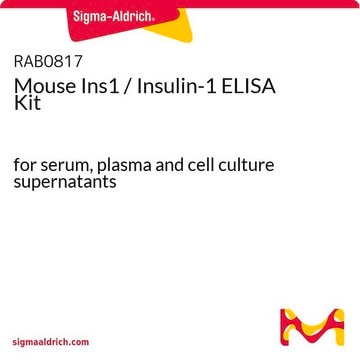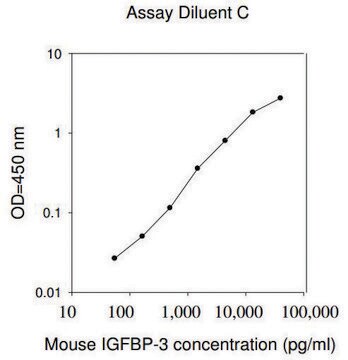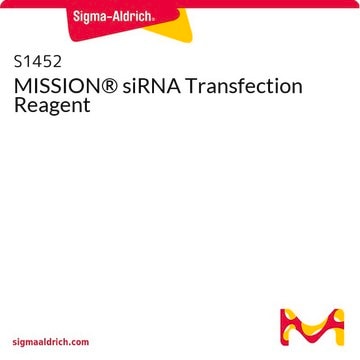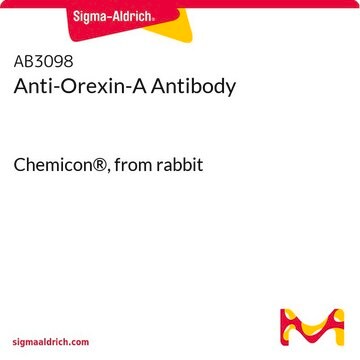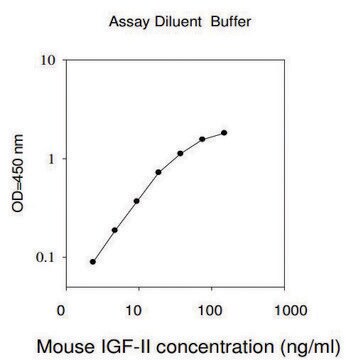RAB0229
Mouse IGF-I ELISA Kit
for serum, plasma and cell culture supernatant
Synonym(s):
Insulin-like growth factor I, Mechano growth factor, Somatomedin-C
About This Item
Recommended Products
species reactivity
mouse
packaging
kit of 96 wells (12 strips x 8 wells)
technique(s)
ELISA: suitable
capture ELISA: suitable
input
sample type cell culture supernatant(s)
sample type serum
sample type plasma
assay range
inter-assay cv: <12%
intra-assay cv: <10%
sensitivity: 4 pg/mL
standard curve range: 2.74-2000 pg/mL
detection method
colorimetric
shipped in
wet ice
storage temp.
−20°C
Gene Information
mouse ... Igf1(16000)
General description
Immunogen
Application
Mouse IGF-I ELISA kit has been used to measure plasma IGF-I (Insulin-like growth factor-I) level from Igf1r L/L and BAT-specific Igf1r-knockout (BATIGFIRKO) mice.
Please refer to the attached General ELISA KIT Procedure (sandwich, competitive & Indirect ELISA)
Biochem/physiol Actions
Other Notes
Please type the word sample in the text box provided for lot number.
Kit Components Also Available Separately
Signal Word
Warning
Hazard Statements
Precautionary Statements
Hazard Classifications
Met. Corr. 1
Storage Class Code
8A - Combustible corrosive hazardous materials
Certificates of Analysis (COA)
Search for Certificates of Analysis (COA) by entering the products Lot/Batch Number. Lot and Batch Numbers can be found on a product’s label following the words ‘Lot’ or ‘Batch’.
Already Own This Product?
Find documentation for the products that you have recently purchased in the Document Library.
Our team of scientists has experience in all areas of research including Life Science, Material Science, Chemical Synthesis, Chromatography, Analytical and many others.
Contact Technical Service
